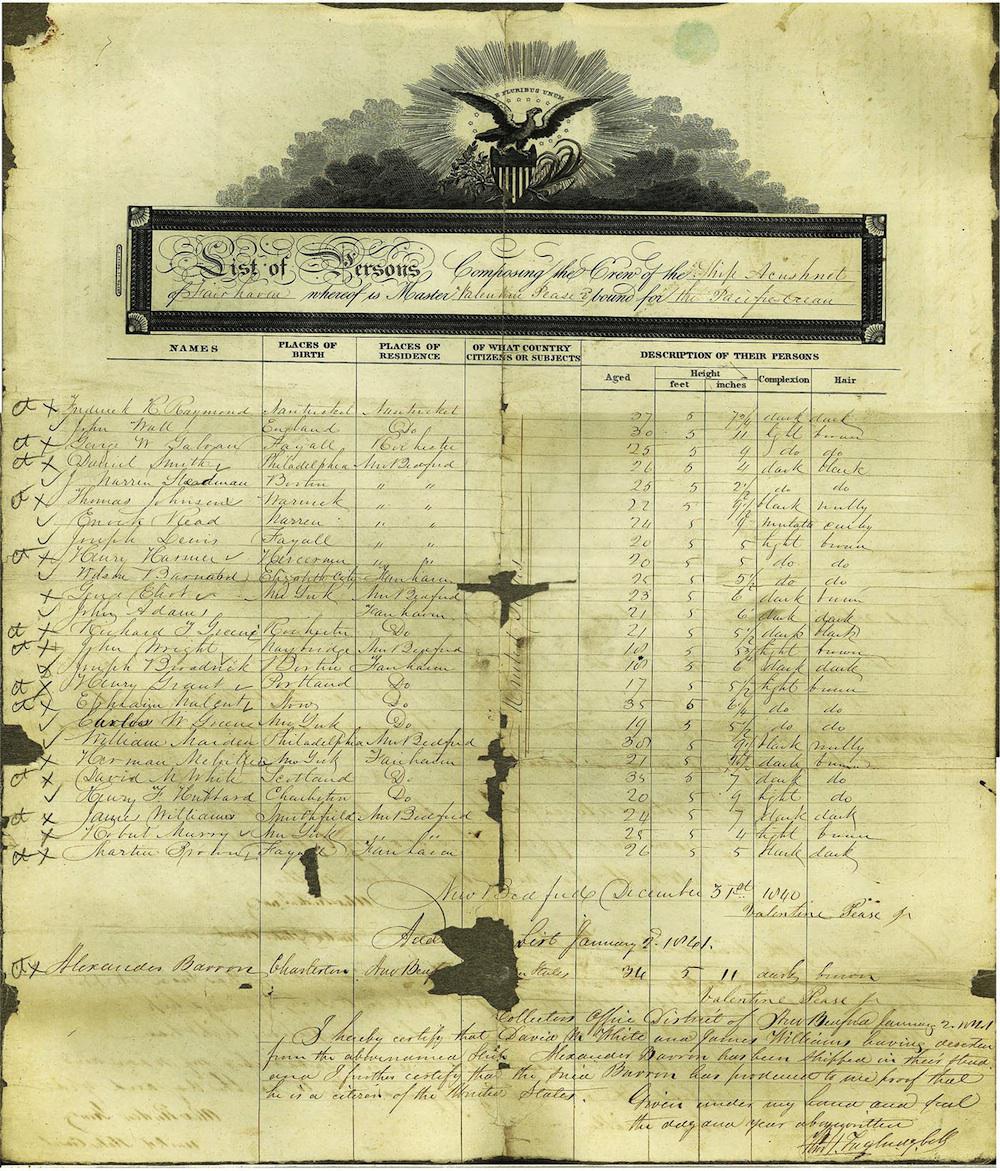The Vault is Slate’s history blog. Like us on Facebook, follow us on Twitter @slatevault, and find us on Tumblr. Find out more about what this space is all about here.
This crew list for the whaler Acushnet, filed with the collector of customs in New Bedford, Massachusetts, in December 1840, incudes the name and physical description of the 21-year-old Herman Melville. The list marks the beginning of the epic trip that was to provide the author with material he used to write his maritime novels Typee (1846); Omoo (1847); Mardi (1849); Redburn (1849); White-Jacket (1850); and Moby-Dick (1851).
Although he had signed up with the Acushnet’s captain Valentine Pease for a journey of four years, Melville deserted on the Marquesas Islands (now French Polynesia) 18 months into the voyage. Eleven of 26 of the Acushnet’s crew and officers were to do the same before the trip was over. Desertions like these were not uncommon in the 18th- and 19th-century maritime world. Historian Marcus Rediker writes that desertion was one way for sailors, whose labor was often coerced or abused, to protest poor conditions on ship: extreme punishments, poor rations, voyages that were extended involuntarily.
Before he returned to Massachusetts, Melville was to live with the indigenous Taipi people; ship aboard an Australian whaler (the Lucy-Ann) where tough conditions also prevailed; be jailed for mutiny; sign onto another whaler (the Charles & Henry); spend some time in Hawaii; and return to the mainland via a stint as an enlisted seaman on the USS United States.
“Besides providing content for his future writing,” Carl E. Rollyson, Lisa Olson Paddock, and April Gentry write, “Melville’s Pacific travels also shaped the intellectual and philosophical perspectives that would mark his later work.” His complicated relationship with discipline and hierarchy, his sensitivity to the trials of the working man, and the cosmopolitan perspective that led Melville to make Queequeg one of the most sympathetic and interesting characters in Moby-Dick were all gained on this voyage.
Click on the image to reach a zoomable version.

Records of the U.S. Customs Service, RG 36, National Archives at Boston.